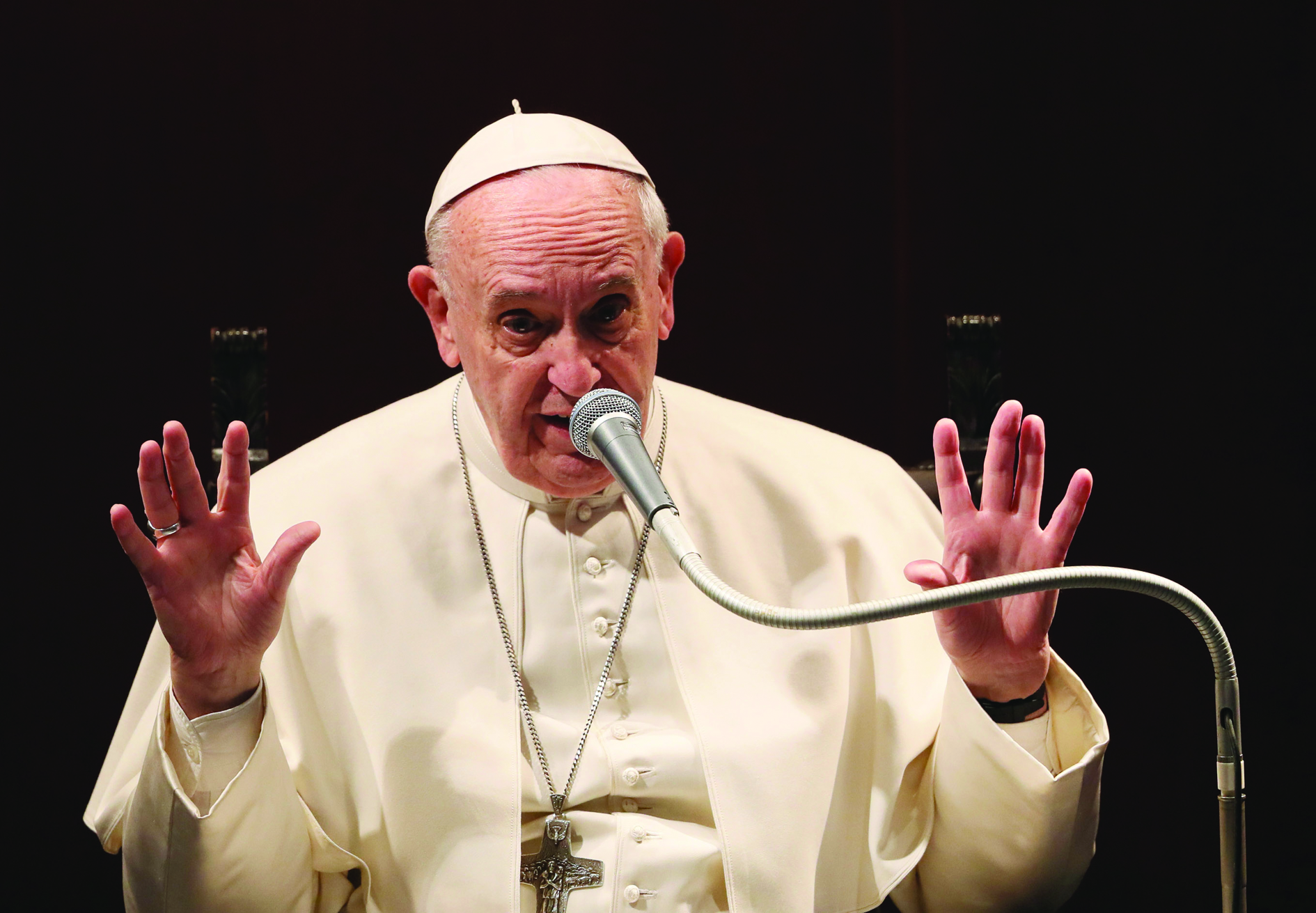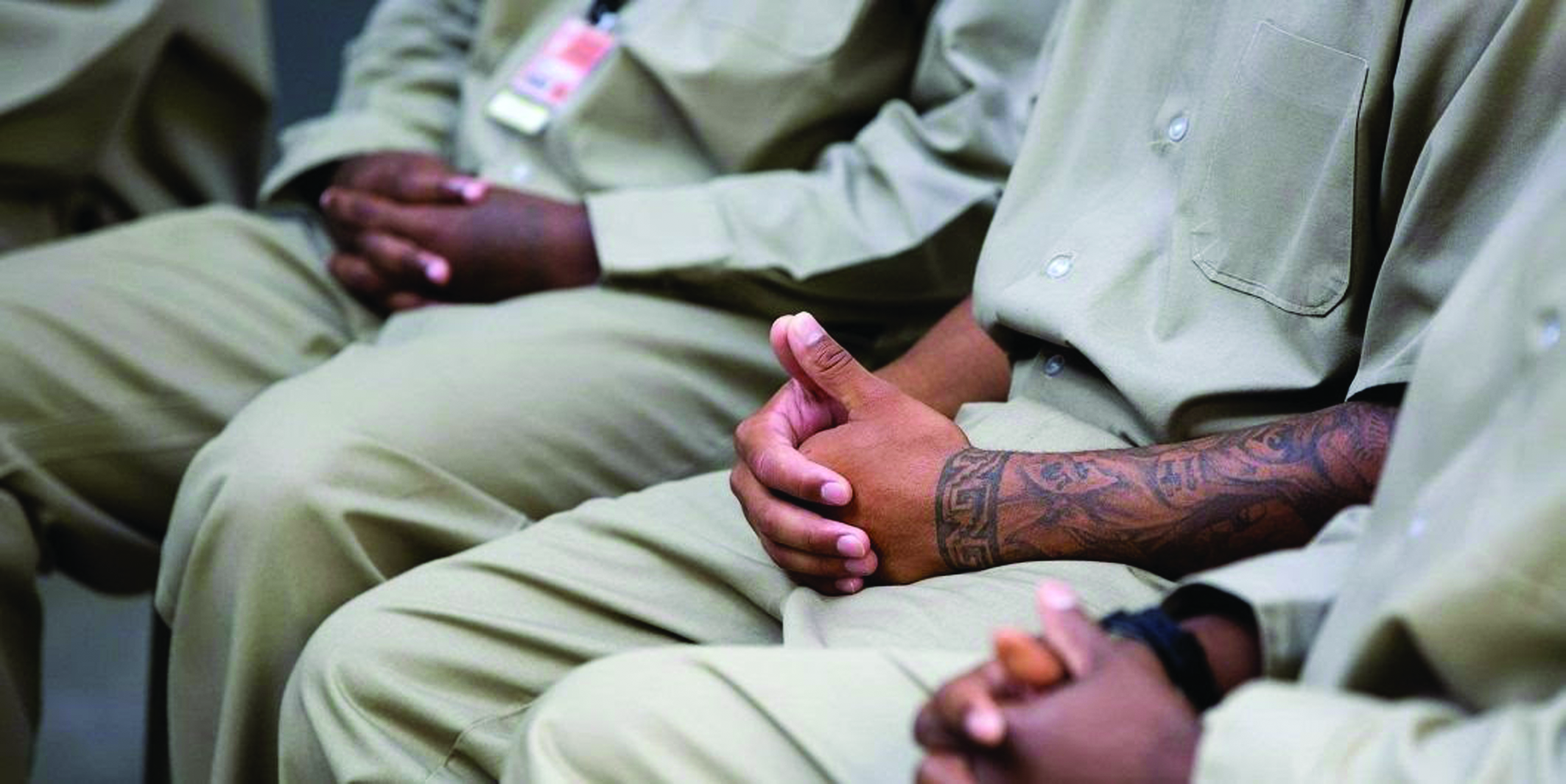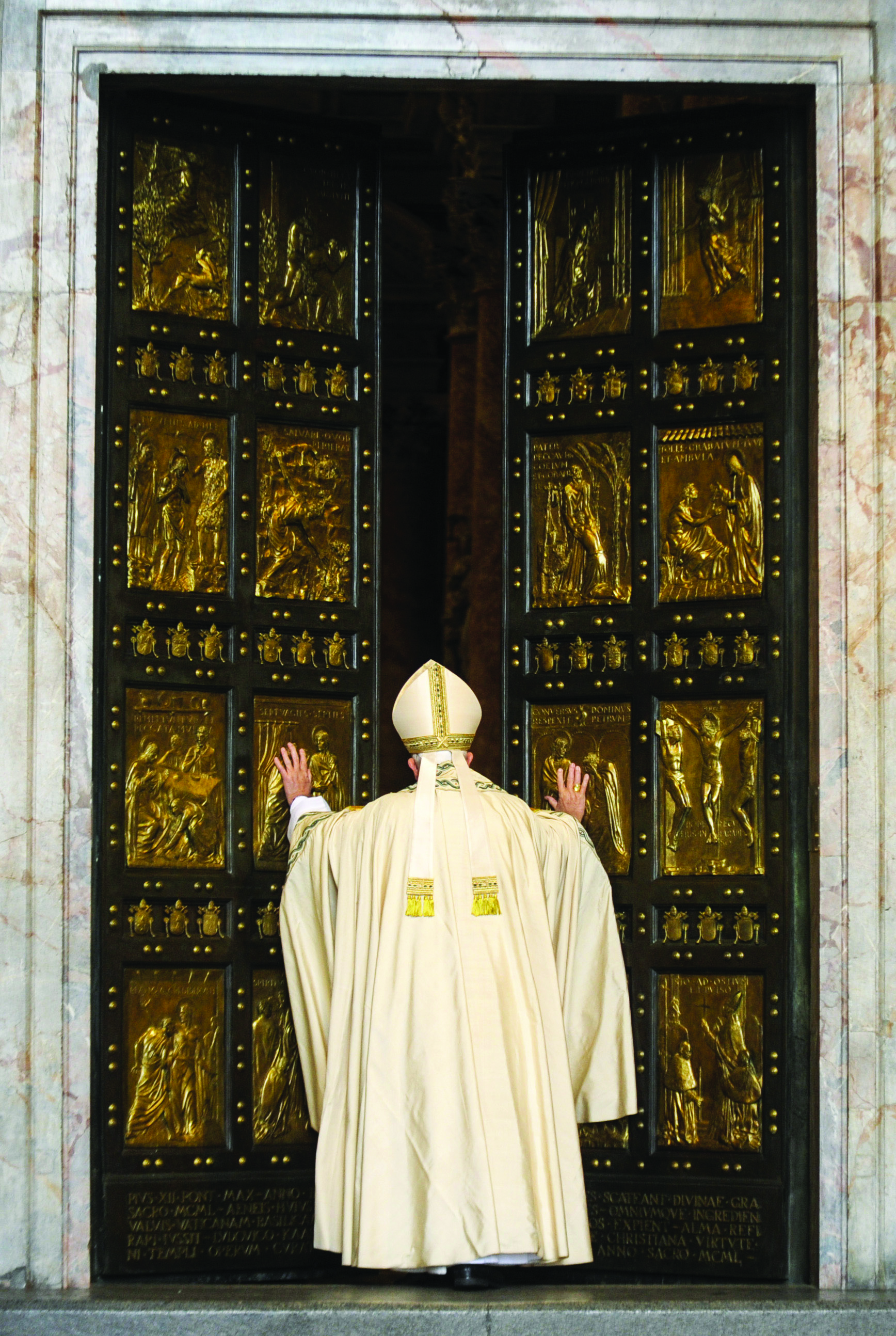Vatican City, February 20, 2015 – “Humanity will not find peace while hunger remains undefeated: while there still exist both people who feast daily and, whether on their doorstep or the other side of the planet, others who are dying of hunger.”
This is one of the theses maintained in Terra e Cibo (“Land and Food”), edited by the Pontifical Council for Justice and Peace and recently released by the Vatican Publishing House.
“The title of this volume brings together two facets of reality, ‘earth’ and ‘food,’” Cardinal Peter Turkson and Bishop Mario Toso explain in their Preface. “The former refers to the organization of means of production and the use of resources, while the latter calls to mind distribution and lifestyles.”
Cardinal Turkson and Monsignor Toso, the leaders of the above-cited Council, remind us that “in the perspective of the Church’s Social Doctrine, the right to food is a fundamental human right, inherently tied to the right to life. The use of natural resources, moreover, is inherently tied to the need for justice and the fight against poverty.”
The book is divided into three main sections: the first (A Worrisome Situation) presents a rundown and analysis of structural and circumstantial causes of problems relating to hunger and food production; the second (The Biblical and Ecclesiastical Message on Agricultural Development) sets out some guiding principles for finding solutions and implementing them; the third (Practical Responses) proposes a series of cultural references and actions that aim toward improving the situation.
Citing statistics from the Food and Agricultural Organization of the United Nations, the document notes that, from 2012 through 2014, about 805 million people suffered from malnutrition. This is defined as a “tragic reality.”
Even though worldwide food production is able to “ensure that every person on the planet can have enough to eat,” there remains still the problem that “the possibility, or means, of obtaining food doesn’t always correspond to the demand.”
People who suffer hunger “essentially live in underdeveloped or developing countries.” According to the Council, when we analyze this phenomenon, “we cannot limit ourselves to a list of circumstantial causes, even though they may be quite relevant: crises, price fluctuations, drought, flooding, corruption, political instability, conflict. We must admit that no one has been able to make structural changes in order to guarantee access to food for all.”
The book then delves into the main problems concerning current food production and its consequences, from a progressive decrease in arable land to threats to biodiversity; from the reduction of the water supply to pollution; from speculation to neocolonialism.
The volume makes various references to Popes, including John Paul II and Benedict XVI, who spoke of “the race to consume and to waste.” Francis, too, is quoted: he has repeatedly denounced what is truly a “culture of waste.” The book states that “in a ‘consumer society’ a certain excess in the consumption of goods is encouraged, especially in more well-to-do communities: they soon start to feel that excess is necessary,” while “the vision of ‘food as nutrition’ is superseded by the vision of ‘food as merchandise.’”
The second part of the book opens with a quote from the Book of Genesis: “The LORD God then took man and settled him in the garden of Eden, to cultivate and care for it.” This illustrates the task man is called to carry out. There follows a reflection on concepts such as the universal distribution of goods, the common good, solidarity and brotherhood, preferential options for the poor, subsidiarity, justice, and the dignity and priority of the human person.
In the third part, we find practical orientation for sustaining development and fighting hunger, starting from the call to respect life: the writers note that “it is a contradiction in terms to worry about ecology and development, when we don’t take care of people.” Various subjects are explored, including investment in the land, with reference to the concept of impact investing, which evokes “a kind of investment whose goal is to have particularly positive effects within the society where it is carried out.”
Thus we find a series of references, or invitations, each of which is accompanied by suggestions: we need to guarantee human rights (life, food, water, education, participation in politics); we need to sustain producers, and place women in the conditions for carrying out their fundamental role; we must foster biodiversity, guarantee access to credit, and encourage research; we also need to enhance commercial communication, and fight against the negative effects of speculation, as well as educating investors, businesspeople, politicians and governments.
The Catholic Church, we are reminded in the end, “participates in the efforts already made to allow every nation and community to have access to the means necessary for guaranteeing an adequate level of food security.” It does this through the commitment of congregations, missions, foundations, bishops’ conferences, dioceses, parishes, the Caritas, and various lay organizations and associations — “through formation, availability of credit, building of infrastructure, reinforcement of food production and the development of businesses: the Church thus responds to emergencies, and, by means of her diakonia, organizes true solidarity with and for the poorest among us.”








Facebook Comments